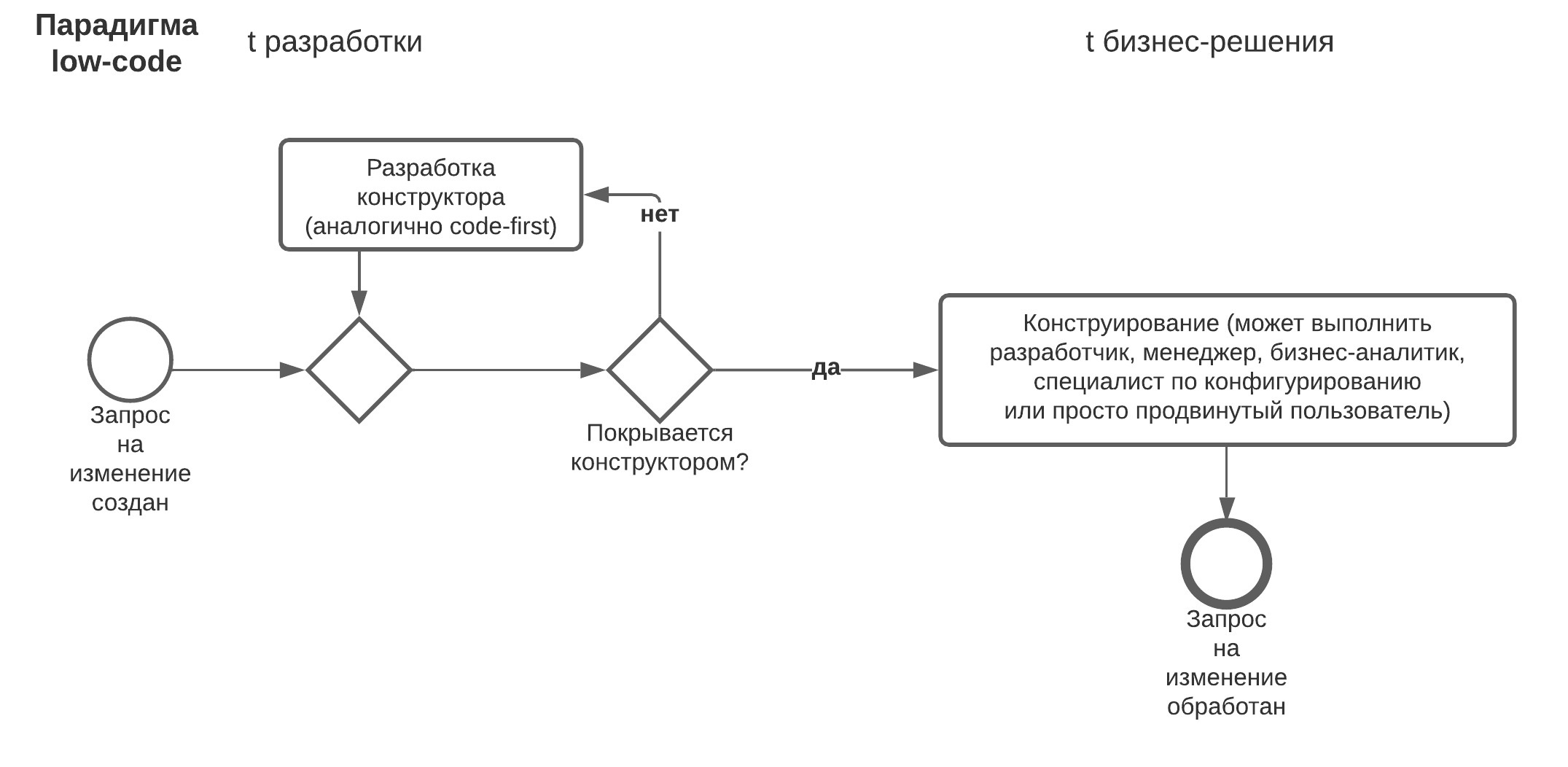In the last article on low-code in enterprise solutions, I turned to business. However, on Habré, most of the users are engineers (Cap!), And in the comments to the article I saw a reasonable number of typical objections to LCDP (low-code development platforms). And while those who do not know about the Dunning-Kruuger Effect are already looking for the dislike button, let's look at the most common misconceptions and thoughts.
In my opinion, the most common misconceptions are as follows.
Someone thinks that low-code is the use of off-the-shelf products (not a development philosophy)
Low-code refers to developed code-first platforms. Some of my colleagues even cited WordPress as an example.
Low-code lacks normal DevOps (code review, versioning, deploy, etc.), normal code reuse and other abstractions. Well, in general, low-code is for some typical solutions (for which no-code is intended).
Developers are better off writing code with out-of-the-box value rather than developing constructors.
“Low-code can be misunderstood, it’s some kind of artifact. We will continue coding as usual. " However, some developers still do not understand everything about DevOps and think that this is a position. So the situation with low-code is not unique.
Why did I decide to raise the topic of low-code and the prospects for the development of the IT industry? I am a physicist and entrepreneur by education. In the mid-90s, he was the owner of an ISP (Internet Service Provider), after that he held positions from an engineer at Beeline to a managing partner of a company specializing in the creation of automation software (current position, which I have been in for 7 years). And now it is interesting to think about what will happen tomorrow.
Briefly about the state of the industry
The level of code abstraction is growing. Starting with machine instructions, moving into procedural programming and abandoning memory management, with an increase in the number of frameworks and the development of high-level languages, what will happen tomorrow? Will the level of development abstraction increase further, and if so, how?
, . : IT-.
, , : .
, : , . ó — .
IT- . « » « C++», — .
. , low-code .
Low-code — ?
low-code (). , low-code .
code-first
. , , — . , - , . ́ change requests - .

.
, (" ") - ? , .
, . . , , , , , .
code-first .
low-code

, , . , , . , , ...
.
, .
, code-first , . ́ .
. , - , .
- ( ) , , . code-first , — («»). , - 2–20 .
, , , .

low-code code-first , . , , , , — -.
LCDP, low-code.
Low-code code-first
, low-code . , «» — « - » — WordPress.
LCDP — , , , code-first.
LCDP.
, , . . code-first , LCDP.
, . .
.
ETL / ESB Talend — low-code .
Mendix, Pega, Appian, OutSystems, Caspio — .
Reify, Builder.io, Bildr — .
2021 — Corteza ( open-source, Go + Vue.js), Amazon Honeycode.
— Unity ? Construct?
— ELMA BPM, Creatio ( «») Comindware, CUBA Platform, Jmix.
— Microsoft Power Apps, Oracle APEX, Salesforce Platform, IBM BAS, SAP BTP.
open-source — Builder.io (), Bonita, Joget.
. , Pimcore, , workflow, low-code ( , ). - , .
«». -, PHP- low-code (. . ). , LCDP-, low-code code-first.
, , « low-code — », . :
LCDP;
LCDP ( — );
LCDP , . — , , !

Low-code , (code review, deploy)
. . (Mendix, Pega) CI low-code.
, , . — , code-first, — , …
, Unity -, , , . , , , . . , .
: , «» . — .
,

, - . — rocket science, . , .
. , ( , - , ). , , . , - .
LCDP? , , , . , ETL-? , ?
, . , , «» .
, , ?
change request, :
, ;
— .
. - , .
? , - . , .
LCDP, . , — . , . , LCDP , . .
. : , . . , . , . , low-code .
Low-code , - .
, , :
, ( );
(. . ROI IT );
IT.
, .
,
— 10 %. , , , .
: , (. . 10 % ).
: , . — .
, .
?
IT, . , IT . IT- . IT . , .
no-code ( ) . , , . « low-code/no-code» — , — «» Apple — , .
, ( ó ) ( ). — 3–4 , .
20 ( ), . . , . : , , .
, . , , . ( ). .
, IT . , - . IT, .
IT
IT ? . ( - , ), . IT ?
- IT , ́ — — ?
I recommend that developers look towards low-code and at least complete a few tasks on any of these platforms to push their own boundaries.
We need to understand the area of applicability, see a snapshot of the current capabilities and learn something new, because that's what we engineers are to look at new technologies through the eyes of practitioners. Perhaps you will not find a single LCDP that would solve your problems, but at least researching this trend for the development of engineering erudition today can be useful.